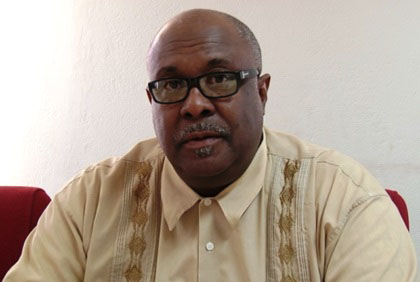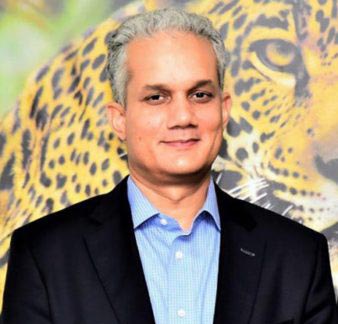With less than two years to first oil, former Government Advisor on Petroleum, Dr Jan Mangal says the number of oversight personnel has to be swiftly ramped up to monitor the current operations and before ExxonMobil is given approval for its Liza Phase 2 Development Plan.
He said that currently the Ministry of Natural Resources (MNR) has no full-time experienced oil and gas (O&G) professional and the Guyana Geology and Mines Commission (GGMC) is greatly disadvantaged as it also faces a human resource deficit in specialists for the sector.
“Guyana needs O&G professionals with 15-30 years of experience, working internationally for the major companies (XOM, Shell, etc) in high level roles, with experience interacting with governments,” Mangal told Stabroek News yesterday.

“We just don’t have the capacity right now. Government needs to do a proper job on analyzing Liza Phase 1 before it approves the Liza Phase 2 Field Development… So when the documents for Liza Phase 2 two comes in this year, the people who would have been hired would check against Liza Phase 1,” he added.
Explaining why specialists are needed before Exxon’s next planned expansion of operations, he said that the first phase of development was approved by a firm, which was hired directly by MNR, that had no prior experience in similar works and no one here had the knowledge to recognize it. Given what he believes was a flawed go-ahead from the firm, Mangal wants government to have experts work along with local staff as they thoroughly review the first documents and highlight errors so that the mistake would not be made for the Liza Phase 2 proposals.
“Liza Phase 1 has already been approved. Its Final Investment Decision (FID) has already been made. There were two documents that were submitted for approval; one the Environmental Impact Assessment (EIA) and the Field Development Plan (FDP). There were numerous issues that local stakeholders had raised on the EIA and we need environmental experts who can review that side of it. The field development plan outlines how they will develop this area, say for the next 20-25 years. It needs government review. When the government reviews, it is the government that makes its input on how the government wants to see this field develop. For example, if they want a natural gas pipe it has to be in there and all of that. Unfortunately, they did not review fully,” he said.
“Some folks at the GGMC had to help and they did the best they could. We need people who would have reviewed or written documents like these, we do not have them. The Ministry of Natural Resources hired a firm…and the hiring of that firm to begin with was wrong. It was not appropriate for the job. The firm never reviewed a Field Development Plan for a government before. It is a very small firm. They had never reviewed for a government before, never. It is important when you review a plan that you know the expectations of the government of that country. The drivers of the government is different from the drivers of Exxon. Then there other things. The firm expected eight weeks or longer to complete the review but the ministry delayed the award until they only had about four weeks. It is not only that the firm did not have the experience, the time the firm was given was inadequate. The other information I received was when they were reviewing, some folks at GGMC would ask questions and they could not even answer people in GGMC. I am giving reasons why the FDP was not properly reviewed,” he added.
The firm in question was Intecsea, a subsidiary of WorleyParsons.
With approvals already given and Exxon forging ahead with Liza Phase 1, which will start production in 2020, Mangal says that project does not have to be halted but experts need to review the plan to pinpoint possible gaps so they have knowledge and experience when others are submitted.
“I am not proposing they stop Liza Phase 1, which has already been approved. I am just hoping they go review and see what the gaps are, and when it comes to the next plan, we know we would have covered Liza Phase 1. These two developments are also the same but Phase 2 is bigger… Government needs to do a proper job on Liza Phase One before it approves Liza Phase Two,” he added.
Slow down
But in the analysis of the Liza Phase 2 plans, Mangal says that approvals would have to “slow down” and government should not be concerned about Exxon’s internal projects and overall capital investments but see its country’s needs as coming first.
“To get up to speed and be productive that means the approval of Liza Phase Two should be next year. There has to be some slowing down. The objective here for Guyana is not to adhere to Exxon’s plan but its own. If Exxon has to slow down, then tough, but Guyana needs to do this. We have not done sufficient audits and reviews to date and we need to do those before going forward. If that slows down Exxon, that is tough but that is how it has to be,” he stressed.
Pointing to a recent New York Times article which quotes GGMC Commissioner Newell Dennison as saying he had only nine technical persons responsible for regulating the sector, Mangal said such deficits in human resource capacity serve the oil companies’ interests.
Said Mangal, “Sorry, the Ministry of Natural Resources has ZERO experienced O&G professionals working fulltime in Guyana. That is, not a single person with experience negotiating developments and experience overseeing developments (as opposed to exploration). Guyana needed dozens since 2015, but not a single one has been hired. And why? Because the oil companies benefit when Guyana does not have the capacity to look out for Guyanese interests. The oil companies benefit when Government institutions are weak.”
He noted that while the MNR/ GGMC are training some persons now they “are of no use right now, they are for the future”.
From his knowledge while working here last year, Mangal pointed out that the persons at the agency also do not have knowledge of software programmes “to perform analysis, nor the expertise to run software.”
The GGMC Commissioner, when contacted by this newspaper yesterday, confirmed that he only has nine technical persons at the agency. Asked if he needed additional staffing and in what areas, he answered, “Of course that would be necessary!”
However, Dennison said that to get specific numbers for the respective specialty areas he would have to first await government’s final policy plans and that there has to be continuous “assessment”.
This newspaper understands that GGMC is awaiting the Department of Energy’s establishment since there could be overlapping of roles between the two agencies.
Mangal believes that government has to move to get both the proposed Department of Energy (DOE) and the Petroleum Commission established and functioning to guide all other agencies. But he said that the lag in developing a policy is because they don’t currently have the experts to guide.
“They can’t even develop a policy plan because they didn’t have the expertise. Now that we have discoveries we need people with development and operations experience. When I was there I advised that we needed to create a small team, of about five people, but the funding was never available. That core team is still needed. This should have happened over a year ago but here we are and it still needs to be done. GGMC and MNR have never made any moves and that is why the new Department of Energy is being set up. It is clear the ministry is not going to do it. Experts will be hired and will sit. We need persons with fifteen and over years of experience who would have worked with the major oil companies, worked around the world negotiating contracts with the government. You need a commercial negotiation person, someone for subsurface operations and an economic modeler; the tax fiscal person etcetera. We still need to bring in the people,” he said.
“The vision was for this new department to take over completely and guide everything. We don’t have the capacity right and the new department would pull in the folks from GGMC and so forth and map out the regulatory framework. Defining the framework, that needs to be done by the new DOE,” he added.





